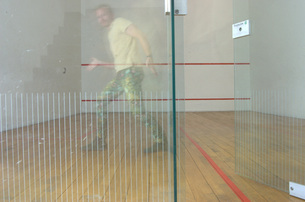Words from Another Place
Andrew Starner
Abstract
This essay addresses modern performance that de- or re-centers the question of language by using the question of language to de-center performance. I use a framework of specifically feminist post-structuralism to support a set of ideas about how to better account for theatre’s “coming to language.” I’ve collected a wide range of dramatists, directors and/or performance theorists and performance artists who have contributed to this shift and describe how this “coming to language” has been influenced by other forms of writing, fields or disciplines and developments in technology. Someone reading this piece should be “convinced” that they should approach acting or writing or spectating differently, no matter what sort of theatre they make or see. I use as warrants for this argument selected figures of feminist post-structuralism and a brief account of the work of Kane and Gray which I believe actually expose the fallacy of psychological realism from the very place it should be most secure: the one-man or one-woman autobiographical drama. I use the example of full-length monologue, or autobiographical drama with the intention of exploring tensions in how plays should be received—which is to say how they should be written, acted, and spectated. (And here I am thinking of something more magical and mercurial that the “received” in, say, Received Pronunciation). I am mostly interested in how language has been shown to exceed itself, and, in so doing, to exceed normal psychological explanations such as motivation. Finally, I’ll briefly explore how in moving beyond the normative uses and definitions of language, it is important to discuss the paranormal in relation to language.
This essay addresses modern performance that de- or re-centers the question of language by using the question of language to de-center performance. I use a framework of specifically feminist post-structuralism to support a set of ideas about how to better account for theatre’s “coming to language.” I’ve collected a wide range of dramatists, directors and/or performance theorists and performance artists who have contributed to this shift and describe how this “coming to language” has been influenced by other forms of writing, fields or disciplines and developments in technology. Someone reading this piece should be “convinced” that they should approach acting or writing or spectating differently, no matter what sort of theatre they make or see. I use as warrants for this argument selected figures of feminist post-structuralism and a brief account of the work of Kane and Gray which I believe actually expose the fallacy of psychological realism from the very place it should be most secure: the one-man or one-woman autobiographical drama. I use the example of full-length monologue, or autobiographical drama with the intention of exploring tensions in how plays should be received—which is to say how they should be written, acted, and spectated. (And here I am thinking of something more magical and mercurial that the “received” in, say, Received Pronunciation). I am mostly interested in how language has been shown to exceed itself, and, in so doing, to exceed normal psychological explanations such as motivation. Finally, I’ll briefly explore how in moving beyond the normative uses and definitions of language, it is important to discuss the paranormal in relation to language.
| etudesfeb2015starner.pdf | |
| File Size: | 398 kb |
| File Type: | |


